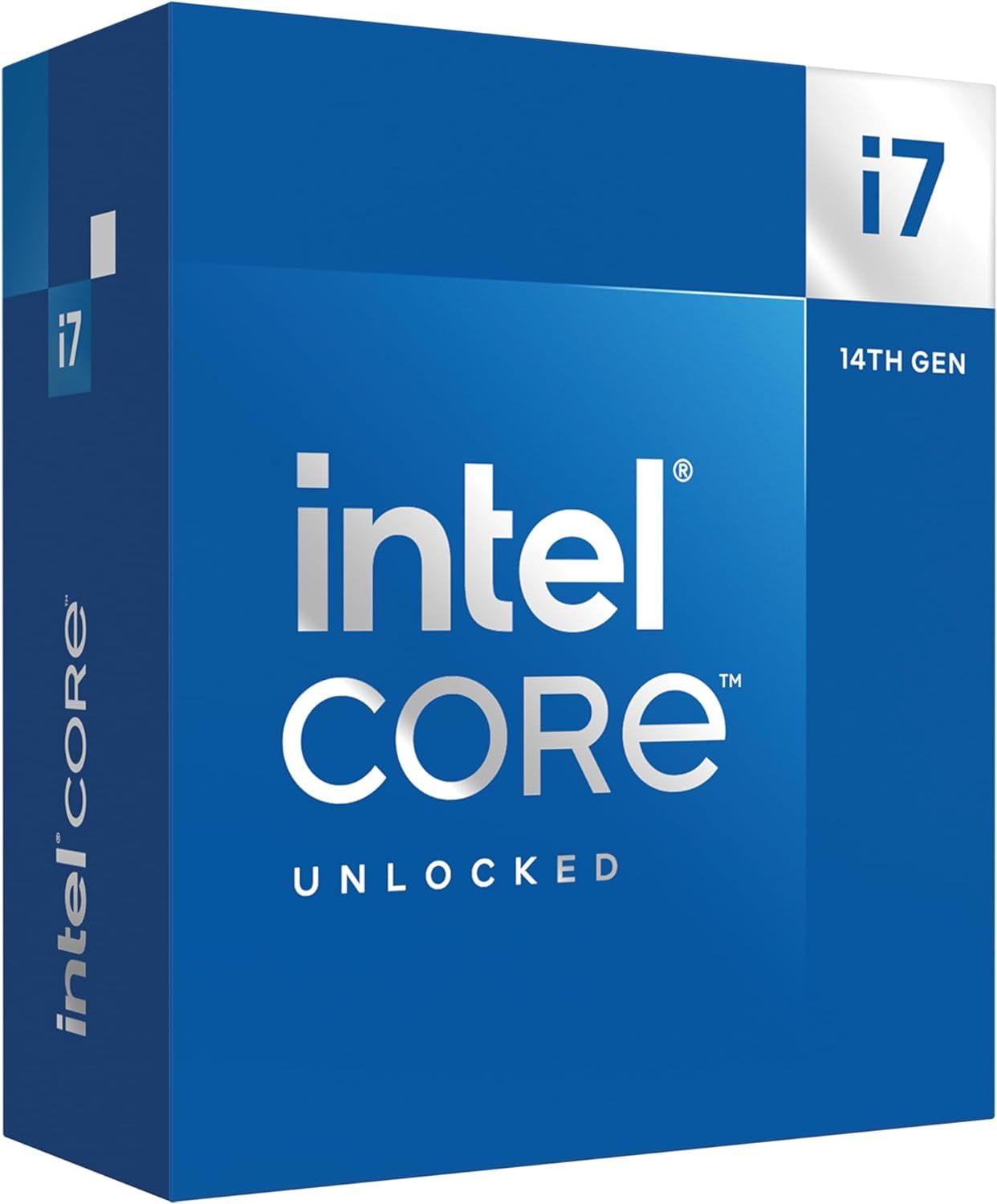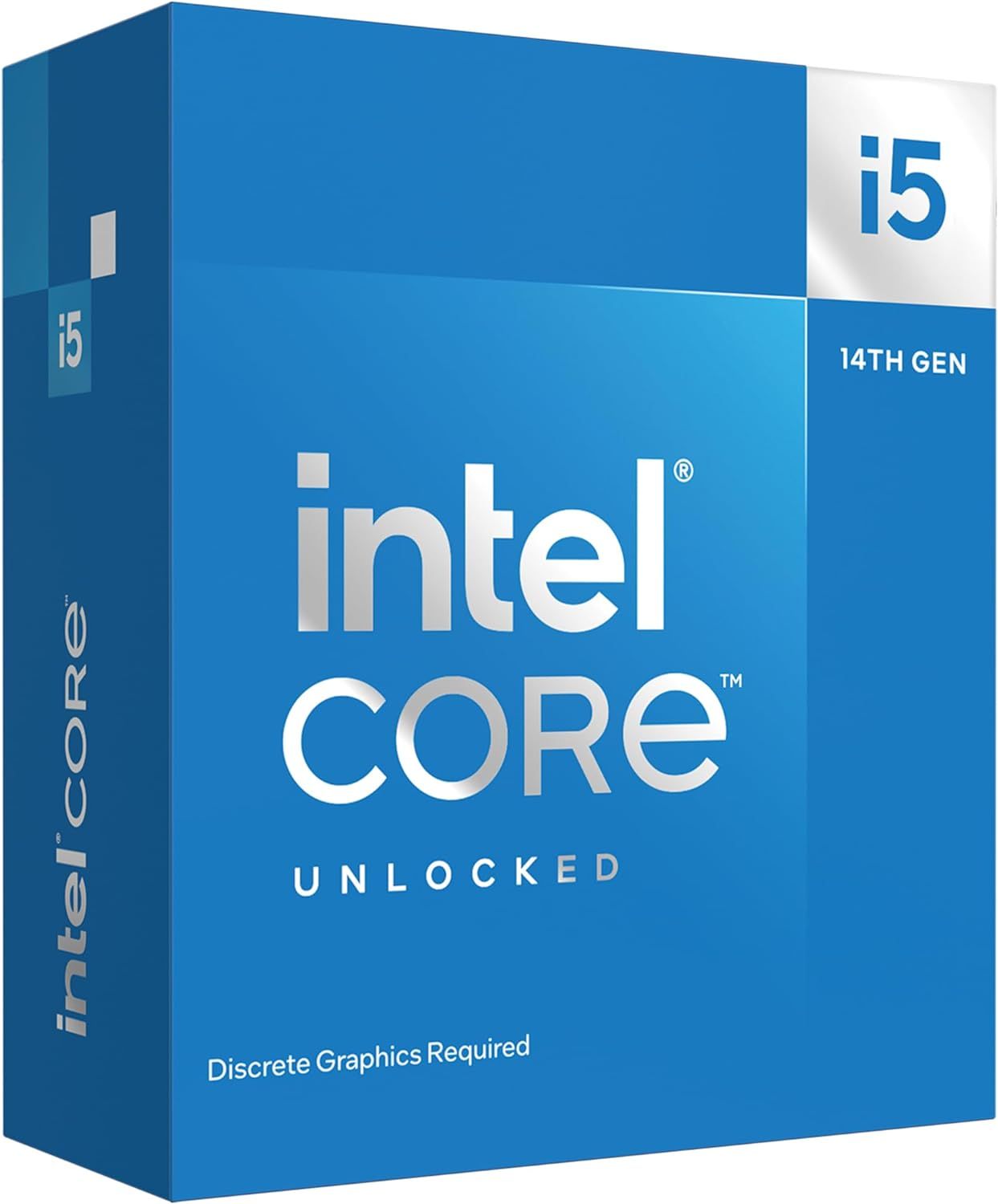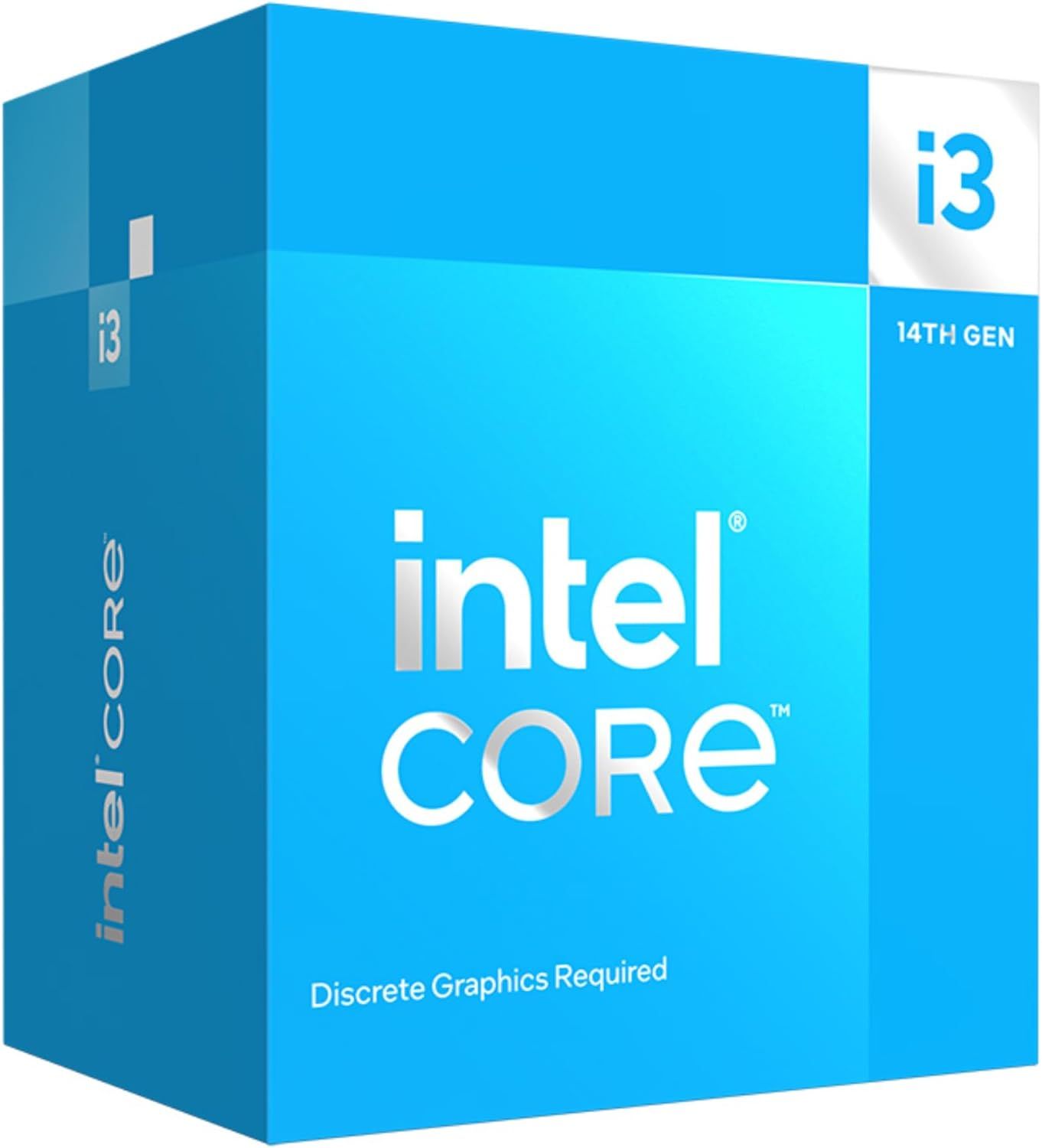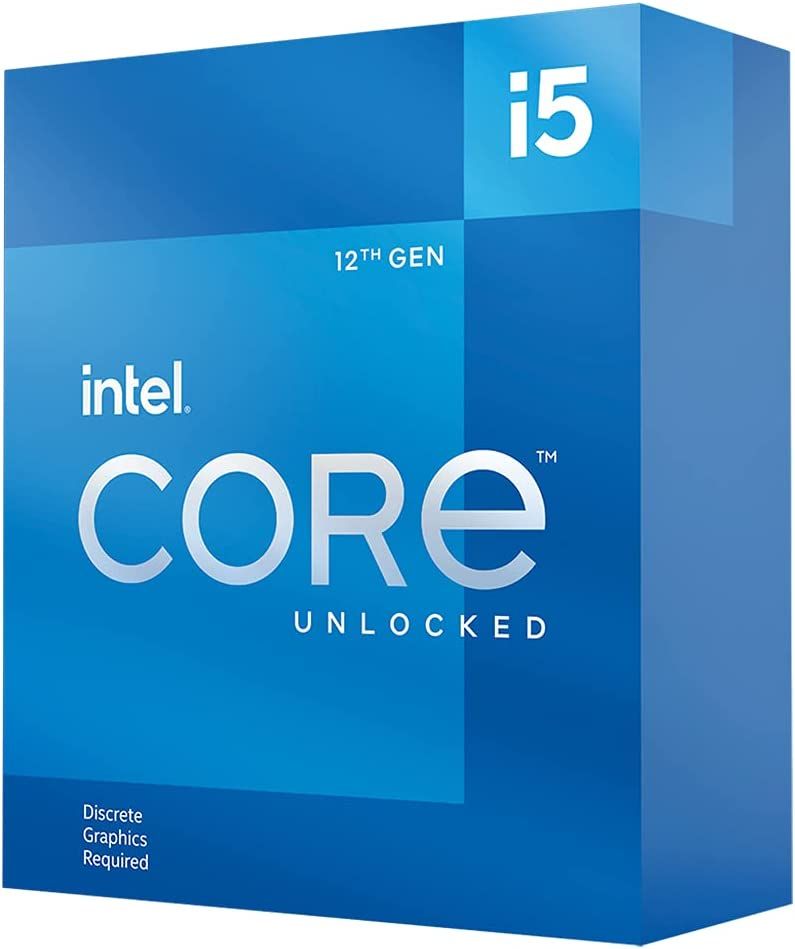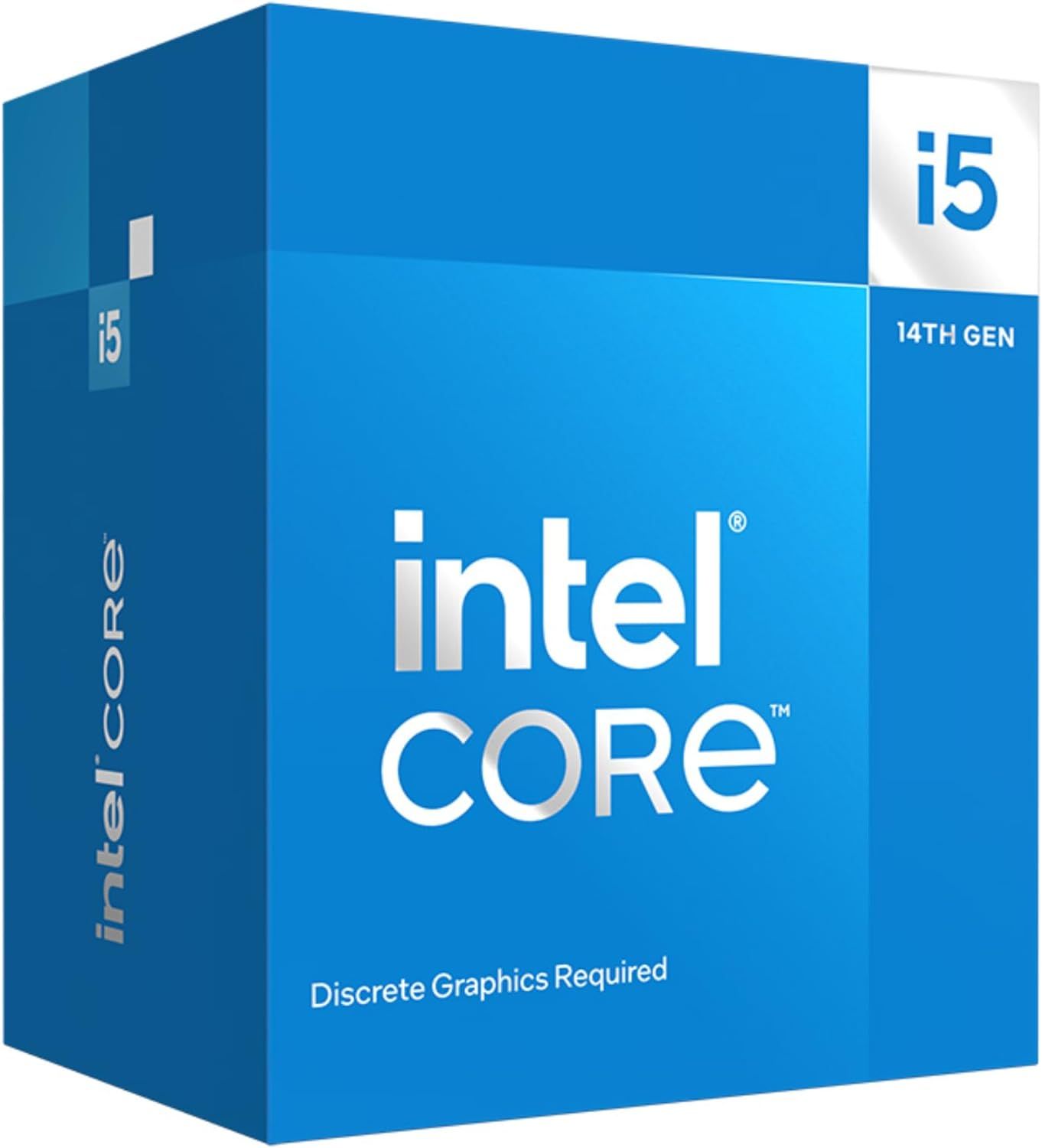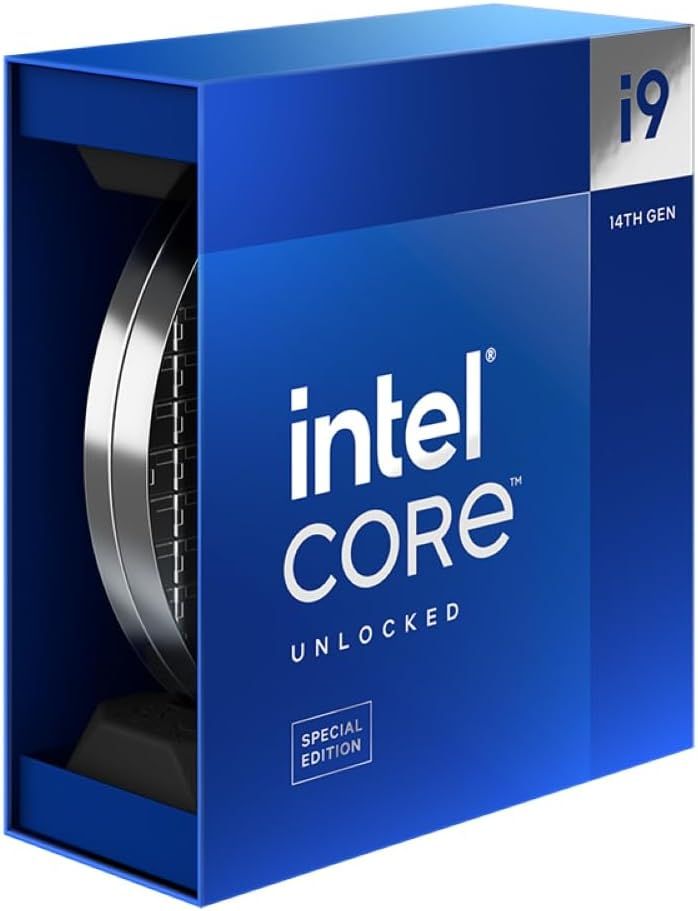Intel's Raptor Lake and its subsequent 14th generation Raptor Lake Refresh-based lineup have taken the market by storm as they compete on various price points against AMD's Ryzen 7000 series to prove which is the best CPU. While Intel is soundly beating said processors with ease at most price points when it comes to multicore performance it does lag behind some AMD processors in gaming, efficiency, and thermal requirements.
This is even as a resurgent AMD pushes its Ryzen 9 7950X3D and 7900X3D processors to gain lost ground versus Intel at the higher end while arguably wresting the gaming crown from Intel's highest-end offerings using the AMD Ryzen 7 7800X3D, which currently holds both the best value and the best performance gaming CPU laurels at the same time.
Intel's value proposition with the 13th and (the newer) 14th generation concentrates on its ability to pack a mix of larger performance cores (P-cores) and efficiency cores (E-cores) to make for more potent multithreaded CPUs that can game quite well but also handle productivity tasks often better than their AMD counterparts simply by offering more cores at each performance tier versus the competition.
While the CPU gaming performance crown for gaming might slightly elude the Santa-Clara-based boys in blue even as the 14th generation sees a widespread release, it has narrowed considerably with Intel pulling ahead in multiple benchmarks across the board thanks to higher clocks, its APO optimizations at the higher-end side of the spectrum and better memory overclocking than the competition.
The team at Game ZXC has made a list of the best Intel CPUs you may want to consider. Most of them are (somewhat unsurprisingly) 14th-generation processors that continue to supplant Intel's 13th & 12th-generation offerings across the board at different price points.
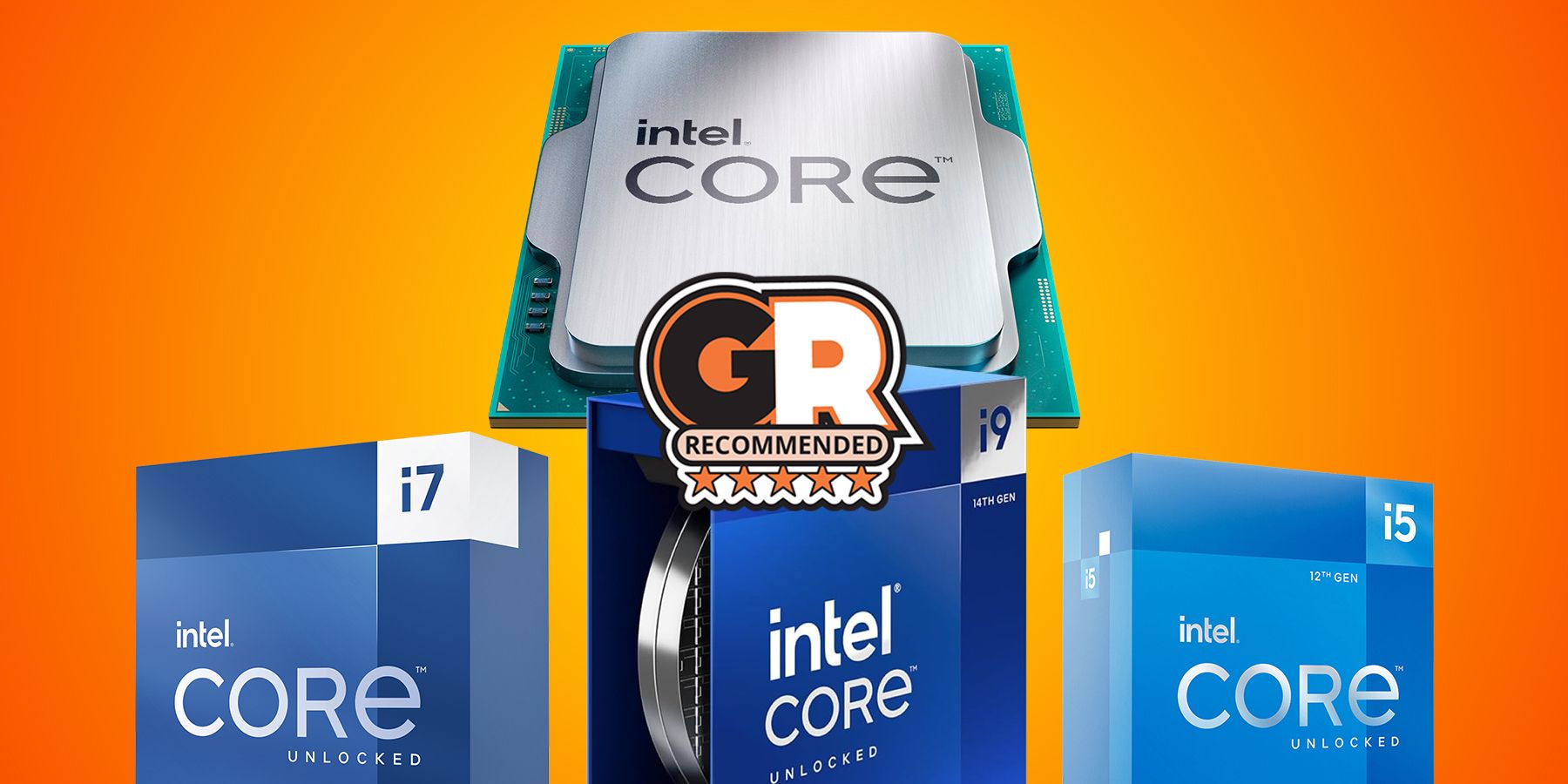
Best Intel CPUs for Gaming in 2024
Take the gaming experience to the next level with the best Intel CPUs in the market.
Game ZXC's Picks for the Best Intel CPUs in 2024
The Intel Core i7 14700K is our choice for the best intel CPU. It is the only unlocked CPU from Intel's 14th generation CPUs that sees an increase in core count versus its last-generation Raptor-lake-based alternative. The 14700K sees an additional 4 efficiency cores in play which makes it a 20-core, 28-thread CPU thanks to the added 4 threads on offer.
It also sees a 200 MHz performance core clock bump while efficiency cores see a smaller 100 MHz increase. This does, in essence, give it a mild performance bump versus its 13th-generation counterpart. The Intel Core i7 14700K essentially replaces the 13700K for gamers looking for sub 5.5 GHz clocks thanks to its higher boost clocks and comes closer to its Core i9 counterpart this generation thanks to the increased cores in play.
However, due to the increased clocks, it also runs hotter and is more demanding in terms of power than its predecessor in 2024. The team at Game ZXC recommends pairing it with an excellent liquid cooler to avoid throttling at higher clocks, especially for productivity and gaming use cases.
Note: The Intel Core i7 14700K is part of a 14th-generation Intel CPU promotion that offers a free copy of Star Wars™ Outlaws ($70 value) for qualifying purchases at participating retailers.

The Best Motherboards You Can Buy in 2024
The motherboard is a core part of any new PC build. Getting the right one is crucial for ensuring a good experience with a new PC.
The Intel Core i5 14600KF 14-Core is the best Intel CPU for gaming we tested. The 20-thread CPU replaces its predecessor as the best gaming CPU from Intel thanks to a mix of value and performance gains on offer. It offers a 200 MHz performance core clock gain in addition to a 100 MHz efficiency core gain even as it stays in the same core configuration as the Intel Core i5 13600KF which remained a consumer favorite since it launched thanks to its more affordable pricing.
With a faster 5.3GHz boost clock and the potential to ratchet it up further with a better motherboard, the 14600KF is a no-brainer upgrade consideration for users considering the 13600KF. It benefits from a small discount over the 14600K but skips an iGPU to do so while having some demanding thermal requirements that can still be covered by more budget cooling options than its 8 P-core alternatives in the shape of the Intel Core i7 14700K and Core i9 14900K. This makes it an easier recommendation for system builders or users who have had some experience with PC building in the past versus the more mainstream Core i5 14600K.
Note: The Intel Core i5 14600K is part of a 14th-generation Intel CPU promotion that offers a free copy of Star Wars™ Outlaws ($70 value) for qualifying purchases at participating retailers.
Intel's Core i3 14100F, our choice for the best entry-level Intell CPU, is the latest and greatest entry-level CPU from Team Blue and much like its predecessors, it offers the same bump in terms of base and boost clocks with the latter seeing as much as a 200 MHz increase across all 4 of its performance cores.
It comes with a stock cooler, an Intel staple for locked CPUs that does a more than adequate job of maxing out its performance but skips an iGPU to keep costs low. Users who need one can, however, go for the more mainstream Intel Core i3 14100 instead which does offer an integrated GPU (Intel UHD 730) for the additional $30 it commands.
While the quad-core 14100F does offer excellent single-core performance for its class, it does suffer from the limitations of only having 4 cores and 8 threads which could limit its performance in thread-heavy games and productivity applications alike. As a locked CPU, it does not have much to offer to tweakers either thanks to it adhering to intel's set limits for an entry-level CPU in 2024.
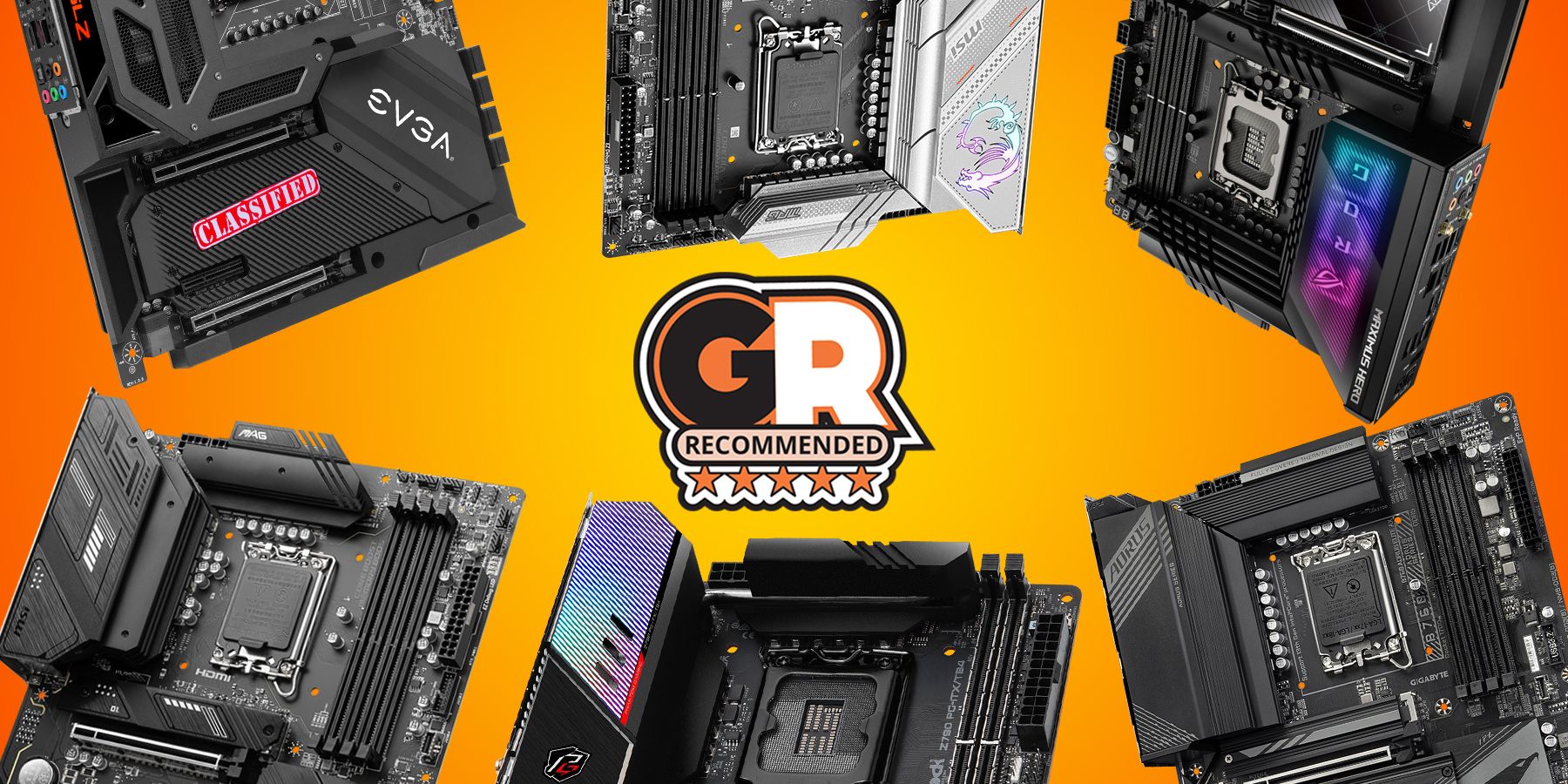
The Best Intel Motherboards in 2024
These are the best Intel Z790 and B760 motherboards you can buy for performance, aesthetics, and overclockability, hand-picked by the Game ZXC Team.
If you're looking to save some money, our choice for the best budget Intel CPU is the Core i5 12600KF. Intel's older Alder Lake-based Core i5 12600KF CPU offers exceptional value for money versus its competition from both Intel and AMD alike as it trades under $200 for an unlocked CPU that beats all of Intel's equivalent locked CPUs in 2024 for gaming with a significant price-to-performance ratio advantage.
The 10-core CPU works across the board with all Intel's LGA 1700-touting motherboards with compatibility offered from the get-go thanks to its age. It beats the Intel Core i5 14400 and 14500 in gaming benchmarks easily but does lose out significantly to the latter in most multicore benchmarks thanks to its added 4 efficiency cores.
The Intel Core i5 12600KF is not a new CPU and thanks to its value proposition primarily due to multiple cuts in play, remains a credible gaming CPU that can handle all modern titles with ease, making it a no-brainer for gamers looking to get more for less when it comes to gaming on an Intel CPU in 2024.
However, at the steep discount it trades at currently, it is a viable deca-core offering that can hold its own with most mainstream desktop and laptop CPUs with ease even as it offers superior value for money than all, if not most of its competition.
Much like the Intel Core i3 14100F above, the mid-range Intel Core i5 14400F is a rebadged version of a 13th-generation chip in the same performance class with a higher base and boost clock speed in tow. It offers compatibility with Intel's existing LGA 1700-based motherboards from older 12th and 13th-generation chipsets.
It also throws in a stock cooler that can handle its thermal needs, making for a great mid-range option for users who need more cores but do not want to spend on a dedicated cooler. It comes in at the same sticker price as its predecessor, the 13400F while skipping an iGPU altogether to keep things cheaper.
Note: The Intel Core i5 14400F is part of a 14th-generation Intel CPU promotion that offers a free copy of Star Wars™ Outlaws ($70 value) for qualifying purchases at participating retailers.
The Intel Core i9 14900KS is Intel's fastest CPU to date and happens to be a cherry-picked version of its excellent Intel Core i9 14900K CPU, albeit with better overclocking headroom thanks in part to what many call the "silicon lottery" when it comes to CPUs and their tweaking potential.
While the 14900KS is not a justifiable upgrade for users on the 13th or 14th generation Core i9 CPUs, it does perform slightly better and that might be enough to get it over the fence for some enthusiasts looking to max out their performance and pick up a chip that is more or less certified to be able to push to at least 6.2GHz is an ideal place to start in 2024.
Much like the 14900K, the 14900KS does have significant power needs when maxed out and it comes with thermal requirements to boot, especially if one means to sustain its performance at higher clocks. Users would benefit from leveraging some of the best AIO coolers in the business to allow it to thrive at the high temperatures it will inadvertently touch almost immediately when under load.
Note: The Intel Core i5 14900KS is part of a 14th-generation Intel CPU promotion that offers a free copy of Star Wars™ Outlaws ($70 value) for qualifying purchases at participating retailers.

The Best Motherboards For The 14900K
These are some of the best motherboards you can pair with Intel's fastest consumer-grade CPU.
Picking a 14th Generation Intel CPU Over a 13th Generation Intel CPU
Intel's 14th-generation processors are essentially 13th-generation Intel Raptor Lake processors with better clocks, and in the 14700K's case, more efficiency cores. The aptly-named, Intel Raptor Lake Refresh CPUs however do offer a massive advantage to consumers when it comes to pricing in an inflation-prone PC market during 2024. They replace their namesake 13th-generation CPUs at the same price points while driving prices lower for the latter.
It does, however, raise the obvious question: Is moving from the 13th generation to the 14th generation Intel CPUs worth it? For users upgrading to the same product class, the answer is a clear "no" given the slim performance gains and increased thermal requirements for an essentially higher-clocked version of their CPUs. For users moving across performance classes (ie: i5 to i7 or i7 to i9), the upgrade does make sense in some cases with the Core i7 14700K being a clear winner thanks to its increased core count coupled with higher clocks in play offering better multi-threaded performance than both, its predecessor and other last-gen chips.
Intel's 14th Generation CPU Tradeoffs
For newer users, the 14th-generation CPUs make more sense. The 14600K retails quite close to the 13600K while the 14700K offers 4 more efficiency cores compared to the 13700K, while things get interesting regarding the Core i9 14900K. The 14900KS is simply a better-binned version of the 14900K which is essentially marginally faster 13900KS from the last generation. Users who got either of the latter 24-core 6GHz CPUs would be hard-pressed to make a buy case for the 14900KS, but for gamers and enthusiasts looking for the fastest CPU possible from Intel, the 14900KS offers exactly just that, even it might be borderline wasteful given the performance gains on offer.
Arguments can be made in favor of Intel's 14th-generation CPUs especially the 14700K and the 14900K/KS. They both support Intel's new APO (Intel® Application Optimization) offering which has proven to be a godsend for some games that implement it, offering anywhere between 15 to 20% performance gains currently.
The current generation 14600K is however remiss sadly from the APO-supporting processors list with Intel's official position on the matter suggesting it is geared towards current-gen CPUs with at least 8 P-Cores: "Settings within Intel® Application Optimization are custom determined for each supported processor, as they consider the number of P-cores, E-cores, and Intel® Hyperthreading Technology. Due to the massive amount of custom testing that went into the optimized setting parameters specifically gaming applications, Intel chose to align support for our gaming-focused processors."
Intel also offers AI-based tuning for overclocking exclusively for the Intel Core i9 14900K/KF/KS CPUs both of which can be pushed to single-core frequencies greater than 6.2 GHz in some cases using the AI-empowered XTU tool. This makes it noticeably faster in games at the high-end enthusiast tier where users are willing and able to spend hundreds of dollars to eke out that extra bit of performance that their CPU is capable of to avoid bottlenecking GPUs like the RTX 4090.
Picking a 13th Generation Intel CPU Over a 12th Generation Intel CPU
As the 14th generation of Intel CPUs come into play in a burgeoning socket LGA 1700 market, the 12th generation has seen multiple price markdowns that often make it a surprisingly better bargain than its 13th-generation alternatives, something that is worth exploring at times. However, most of these deals are inconsistent or subject to limited quantities, which factors in negatively when recommending said CPUs as great bargains relative to the newest Intel offerings.
Intel's 13th Generation CPU Tradeoffs
Intel's 13th-generation CPUs offer slightly better IPC counts thanks to their newer Raptor Lake CPU cores along with better clocks. Towards the higher end, Intel's 13th-generation CPUs pack considerably more cores making them far better at multicore workloads. That's in addition to already better single-core performance due to better clocks and slightly newer architecture.
The 13th-generation CPUs offer better support for DDR5 memory while offering compatibility with DDR4 memory much like their 12th-generation alternatives and work with both 12th and 13th-generation motherboards. The 12th-generation motherboards nearly always need a mandatory BIOS update to recognize the newer 13th-generation processors, unless they ship with the requisite update from the factory.
Conclusion
Assuming one must have the best of the best when it comes to Intel processors, the Intel Core i9 14900K (which is essentially a cheaper Intel Core i9 13900KS) processor is pretty much a no-brainer until Intel releases a newer generation of Meteor Lake chips. For those on a budget, consider the Core i5 13500. It will save buyers the need to get a 3rd party cooler as part of their build, while still delivering stellar performance compared to AMD's 7000 series and Intel's 12th gen.
If users, however, need an overclockable gaming processor, one feels the 14600KF offers the best blend of value and performance. But if they are looking for the fastest CPU for gaming, period, consider reading the team's guide about how the Intel Core i9 14900K and 14900KF stack against AMD's Ryzen 7 7800X3D CPU for gaming.
FAQ
Q: What is the fastest Intel CPU right now?
The Intel Core i9 14900K is Intel's fastest consumer-grade CPU, offering 24 cores and clock speeds of up to 6GHz across its 8 performance-centric P-Cores.
Q: What is the latest generation of Intel CPU Currently?
Intel's 14th generation Raptor Lake Refresh processor lineup is currently its latest available consumer-grade CPU offering.


